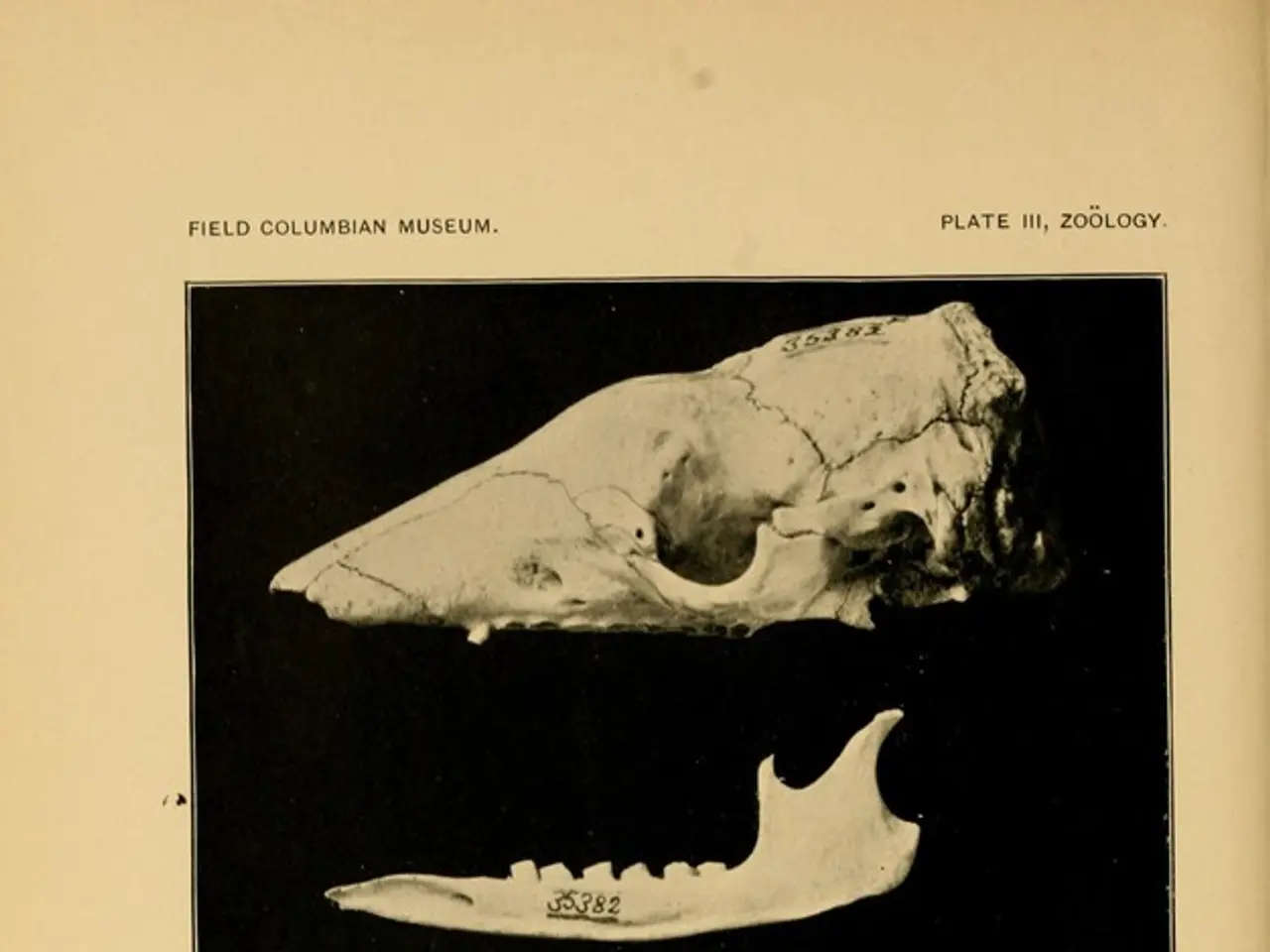Dietary Strategies for Optimizing Brain Health: Exploring the Ideal Eating Patterns
Revamped Article:
Hey there! Let's dive into the scoop on maintaining a brain-friendly diet that helps slow cognitive decline and reduces the risk of Alzheimer's and dementia. Dr. Nuño, a Ph.D., extraordinaire, dishes out some valuable insights on the topic.
Brain nutrition plays a pivotal role in maintaining overall health and wellbeing, especially for those dealing with conditions like Alzheimer's or dementia. It's crucial to note that certain food combinations may have powerful benefits for our brain health.
There's been a lot of chatter about the Mediterranean diet, which is often recommended to prevent Alzheimer's and other memory-related issues. But, is it all true? What foods truly benefit cognitive function and delay its decline?
Let's uncover what research tells us.
Is It Possible to Cheat Alzheimer's and Dementia with Food?
A well-balanced diet can significantly lower the risk of dementia or Alzheimer's disease. Various types of food can have a favorable impact on brain function.
Our primary focus should be on tackling the processes of oxidative stress and inflammation that occur during brain aging. We can intervene in these phases before our brain cells progress to Alzheimer's disease.
What's the Best Brain Diet?
Proper nutrition is fundamental for a strong and healthy body, and that holds true even for individuals dealing with Alzheimer's or dementia. Poor nutrition may lead to increased behavioral symptoms and weight loss.
While studies continue to search for the best food type to support cognitive function, most research points to the power of combinations. In particular, specific dietary patterns like:
- the Mediterranean dietary pattern—linked to reduced cognitive decline and incident Alzheimer's disease, and
- the Dietary Approach to Stop Hypertension (DASH) diet—with neuroprotective actions
Is the Mediterranean Diet a Fad?
Not at all! The Mediterranean diet is a series of dietary guidelines designed to help make wise food choices. It boasts a variety of options such as:
- Olive oil as the primary source of fat
- A medley of fresh fruits, vegetables, legumes, nuts, and seeds
- Whole grains
- Minimally processed foods
- Regular fish consumption with some moderation of red meat
- Plenty of water and eggs as a protein source
- Wine in moderation with meals, and
- Sweets, cakes, and dairy desserts only occasionally
The Mediterranean diet doesn't just focus on the meal; it also encourages dining in good company, making the experience enjoyable, and adding moderate physical activity.
Can the DASH Diet Delay Cognitive Decline?
The DASH diet is less extensive and has many similarities with the Mediterranean diet. It involves:
- Emphasizing the consumption of vegetables, fruits, and whole grains
- Opting for fat-free or low-fat dairy products, fish, and poultry, beans, nuts, and vegetable oils
- Limiting high-saturated-fat foods like fatty meats, full-fat dairy products, and tropical oils
- Minimizing sugar-sweetened beverage consumption and sweets
What Does a Brain-Healthy Meal Look Like?
A well-rounded, satisfying meal with a variety of foods is ideal for maintaining brain health. Incorporate as many natural foods as possible and restrict processed foods. Consider the "three G's":
- Good vegetables
- Good fats
- Good carbohydrates
Keep in mind that in later stages of Alzheimer's disease, if loss of appetite is a problem, adding sugar to foods may encourage eating.
Which Veggies Boost Cognition and Energy?
Vegetables are our power source, loaded with vitamins, minerals, fiber, and phytochemicals. Cruciferous and leafy green veggies like broccoli, spinach, lettuce, Brussels sprouts, cabbage, cauliflower, Kale, radish, and tomatoes are beneficial.
Research suggests that phytochemicals perform better when consumed in combination with different healthy vegetables rather than individually.
Is Fat a Friend or Foe in a Healthy Diet?
Fats often get a bad rap, but they're not all bad. Choose monounsaturated and polyunsaturated fats over saturated fats or trans fats. These fats improve cholesterol levels and have been shown to help with memory and cognition.
Good fats include:
- Olive, canola, peanut, and sesame oils
- Avocados
- Nuts
- Fatty fish
- Lean cuts of meats, such as chicken and turkey, over red meats
Can Carbs Aid in Slowing Cognitive Decline?
Carbohydrates sometimes get overlooked when discussing a healthy diet, but good carbs are high in fiber and antioxidants, helping combat oxidative stress. They can be found in all fruits, especially berries.
In terms of berries, blueberries and strawberries are some of the best choices. While all fruits are beneficial, those with a lower glycemic index are even more advantageous. Even high-sugar fruits can be beneficial if consumed in moderation, as their fiber content makes them filling.
While we've primarily discussed fat and carbs, there's no need to focus solely on these aspects. If you eat a variety of foods, lean meats, good fats, and carbs, you'll naturally get the protein you need and maintain a healthy diet.
Need some additional inspiration or guidance? Check out Dr. Nuño's YouTube presentation on "Nutrition and Alzheimer's," which offers a delightful cooking recipe!
Get excited to play, discover, and enjoy the fun as you help scientific research by assessing your brain's memory abilities on our online platform game. If you're interested, sign up here.
Stay tuned for updates on brain aging and tips for staying cognitively fit.
Dr. Tomás Nuño, a research assistant professor in the Department of Emergency Medicine, shares his knowledge about chronic disease disparities among underserved populations, particularly cardiovascular disease and diabetes prevention.
References:[1] Micallef A, et al. Nutrients. 2020;12(8):2548.[2] Mattson MP, et al. Cell Metabolism. 2017;25(3):481-494.[3] Das SR, et al. Alzheimer’s Research & Therapy. 2019;11(1):47.[4] Morris MC, et al. Neurology. 2005;64(5):825-834.[5] Pintaudi B, et al. Journal of Alzheimer’s Disease. 2017;60(1):15-33.
- Engaging in a balanced diet rich in foods like those suggested by the Mediterranean and DASH diets can potentially lower the risk of dementia and Alzheimer's disease.
- Incorporating good vegetables, good fats, and good carbohydrates in a brain-healthy meal can provide essential nutrients for cognitive function and energy, helping to combat oxidative stress.







